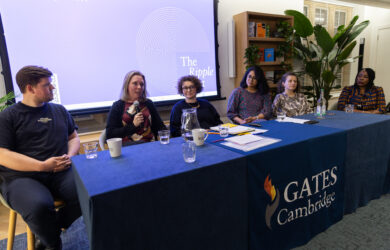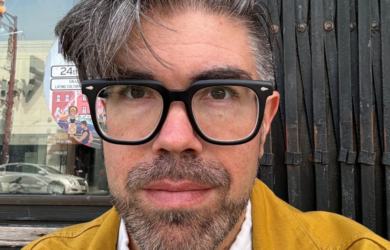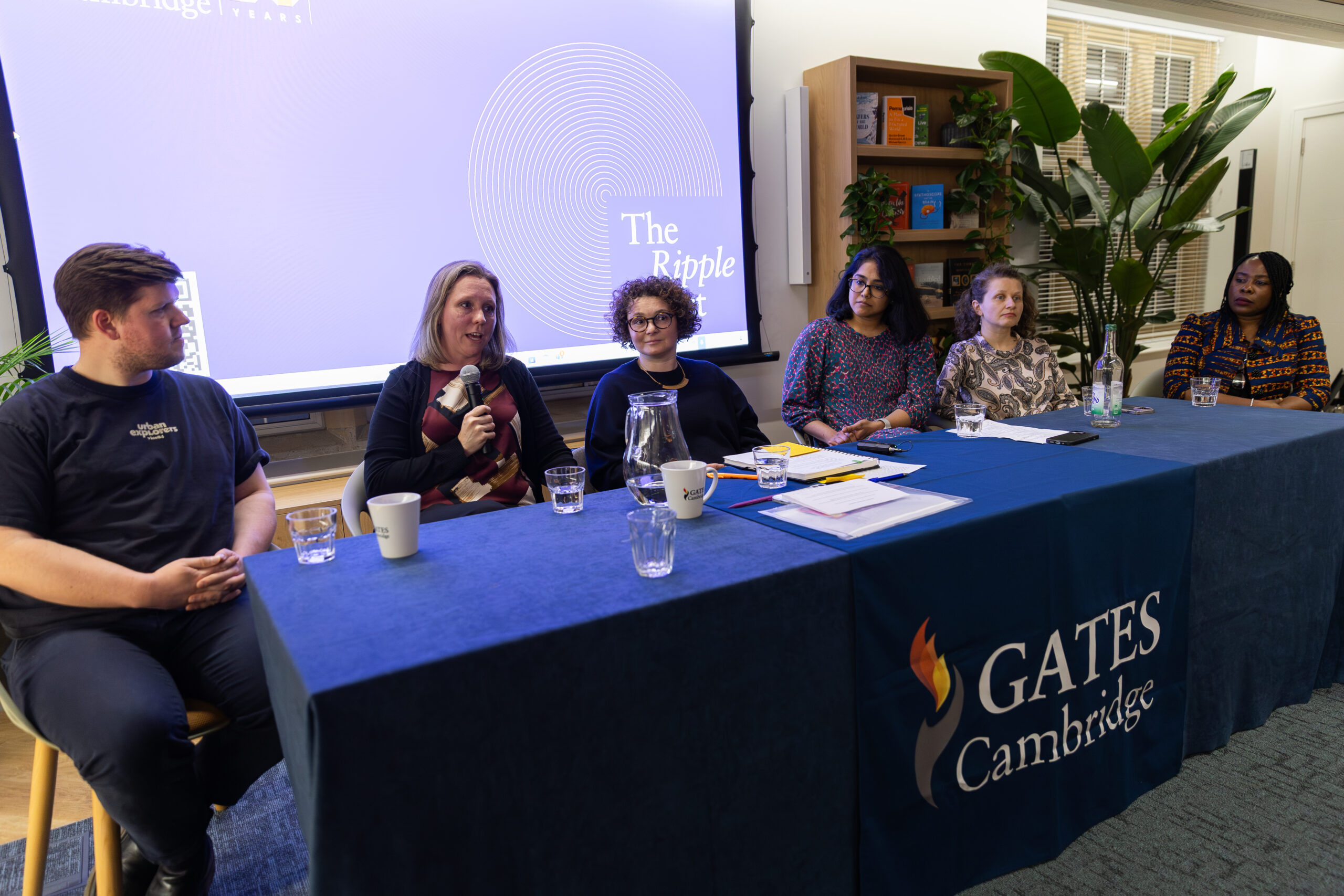
Five Gates Cambridge Scholars spoke at the Cambridge Festival on Friday on subjects ranging from food security to a new approach to whistleblowing.
We aim to spark a movement which sees Africa not as a landscape of challenges, but as a landscape of opportunities. We don’t want to accept hunger as normal.
Carol Ibe
Five Gates Cambridge Scholars working in bioprinting, whistleblowing, food security, pandemic preparedness and biometrics outlined their ideas for a better world at a Cambridge Festival event on Friday.
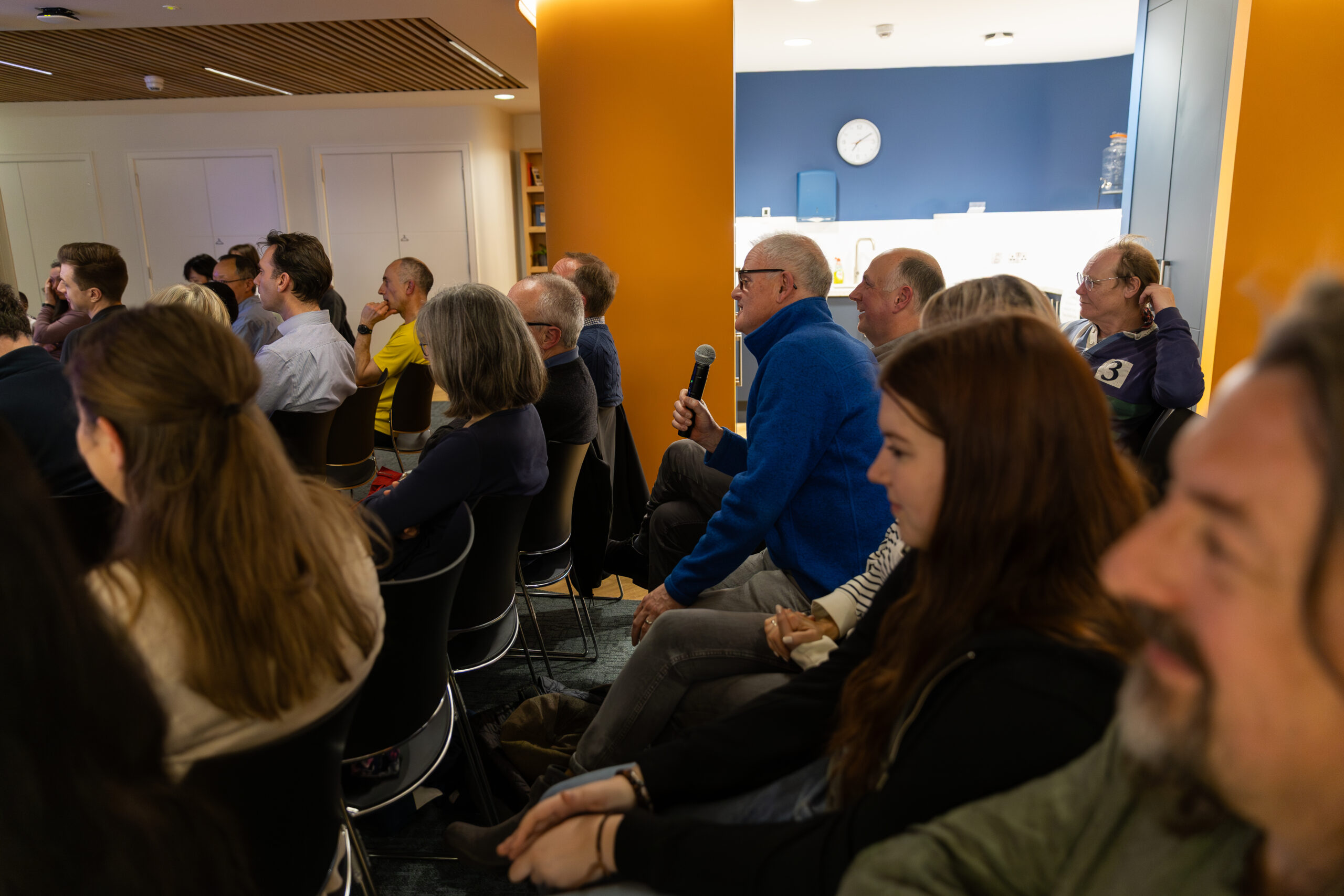 The event, Ideas that can change the world, was held at Bill Gates Sr. House and chaired by international journalist Catherine Galloway, presenter of the Gates Cambridge podcast So, now what?. It was part of Gates Cambridge’s 25th anniversary celebrations.
The event, Ideas that can change the world, was held at Bill Gates Sr. House and chaired by international journalist Catherine Galloway, presenter of the Gates Cambridge podcast So, now what?. It was part of Gates Cambridge’s 25th anniversary celebrations.
The Cambridge Festival is the University of Cambridge’s most prestigious public engagement event of the year and runs from 19th March to 4th April. Several Gates Cambridge Scholars are featured in the programme.
Accountability in tech
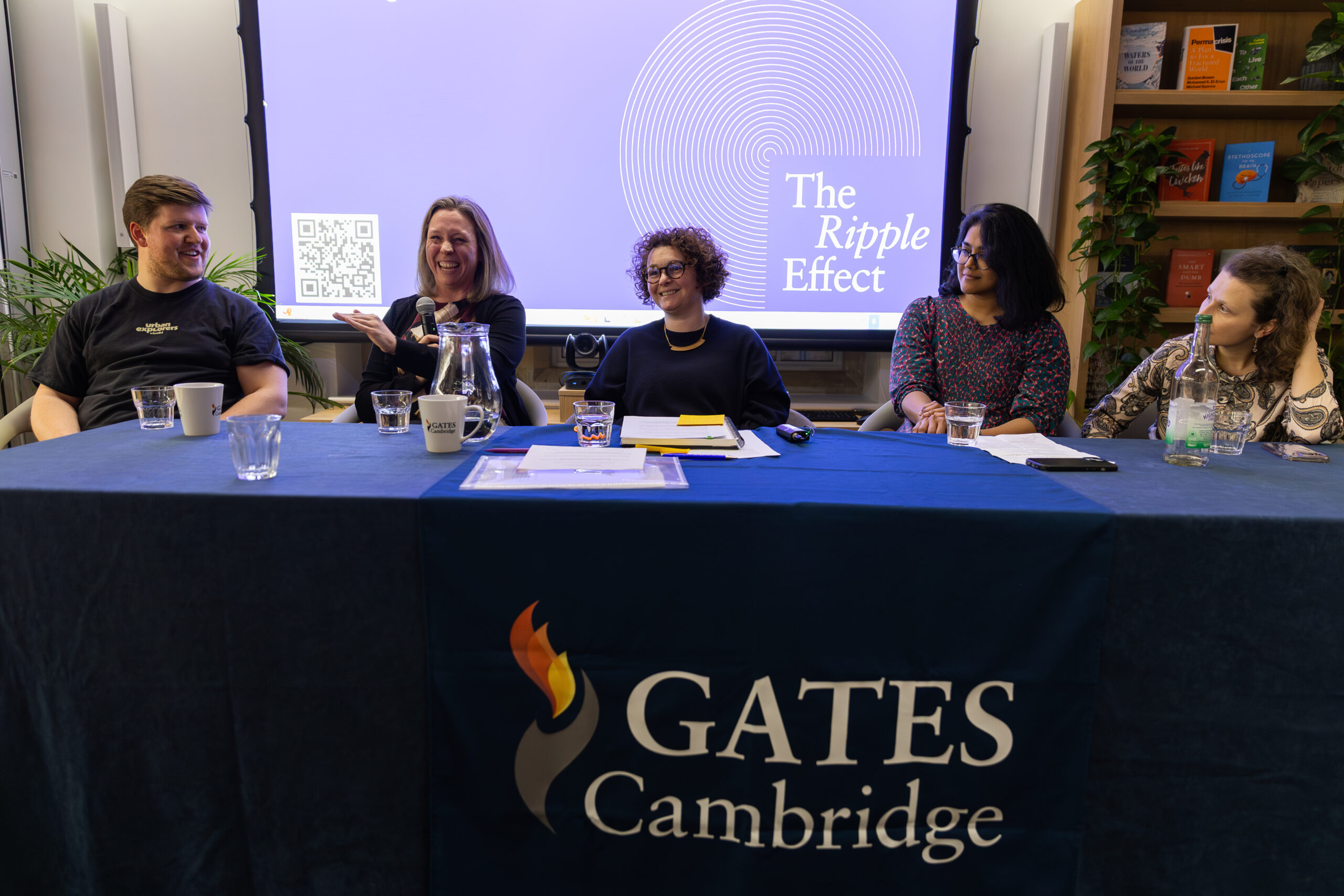 First up was Jennifer Gibson from the inaugural class of 2001. She is co-founder of Psst.org, a new type of whistleblowing platform. The organisation is working in particular with people in the tech sector which has gained unprecedented powers in recent years and months and has evaded proper regulation.
First up was Jennifer Gibson from the inaugural class of 2001. She is co-founder of Psst.org, a new type of whistleblowing platform. The organisation is working in particular with people in the tech sector which has gained unprecedented powers in recent years and months and has evaded proper regulation.
Gibson said access to information within tech companies is becoming siloed as companies seek to curb leaks about what they are doing. That means individuals only tend to have some of the pieces of the puzzle. Psst.org allows collective whistleblowing – people can supply their pieces and see if there is a match from within their organisation – so the full jigsaw can be put together. In doing so, it protects individuals from the risks they take in going it alone and provides them with legal advice.
Gibson added that, since Trump came to power, the corporate playbook has changed and people suspected of leaking information are being fired while information is disappearing from servers. “Accountability relies on a pipeline of information needed for better laws without people having to blow up their lives in the process,” she said. “If we are going to keep the guardrails on we have to make it easier for people to speak up and feel protected.”
Food security
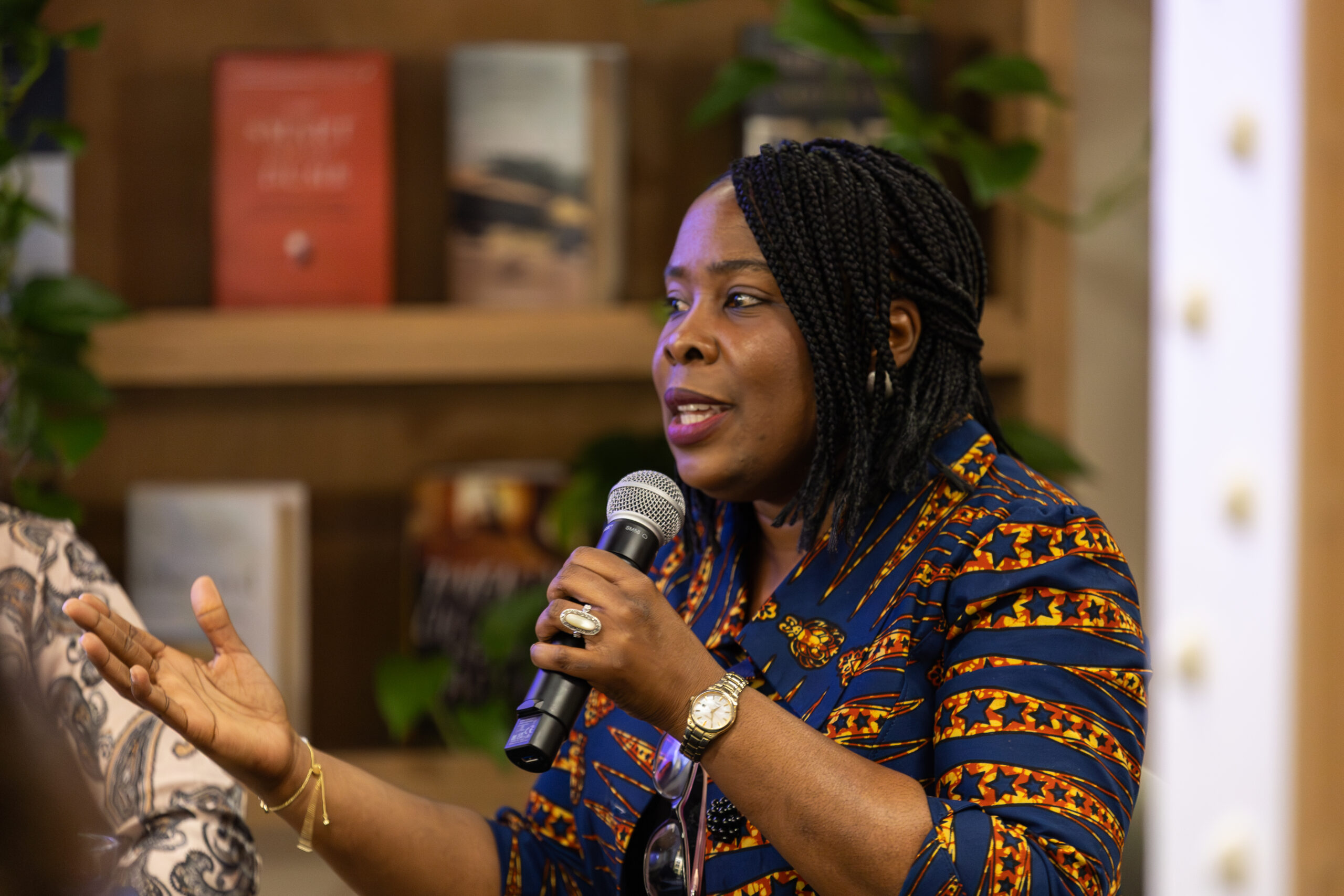 Carol Ibe [2015], founder of the JR Biotek Foundation, spoke about how her organisation had trained hundreds of African scientists in person and virtually in the latest biotechnology knowledge and tools. But she said training alone is not enough and community-driven solutions are needed. She is launching the Agri-Innovation & Impact Project (AGRIIP) which brings African scientists together with smallholder farmers to focus on food security amid global climate change.
Carol Ibe [2015], founder of the JR Biotek Foundation, spoke about how her organisation had trained hundreds of African scientists in person and virtually in the latest biotechnology knowledge and tools. But she said training alone is not enough and community-driven solutions are needed. She is launching the Agri-Innovation & Impact Project (AGRIIP) which brings African scientists together with smallholder farmers to focus on food security amid global climate change.
The project will look at traditional African crops which don’t benefit from a lot of research and development attention and it will be accompanied by an art initiative which aims to tell the stories of African farmers in order to drive engagement. She said: “We aim to spark a movement which sees Africa not as a landscape of challenges, but as a landscape of opportunities. We don’t want to accept hunger as normal. Art and science can intersect to drive change around climate. We can build a world where food security is not a privilege but a right.”
Pandemic preparedness
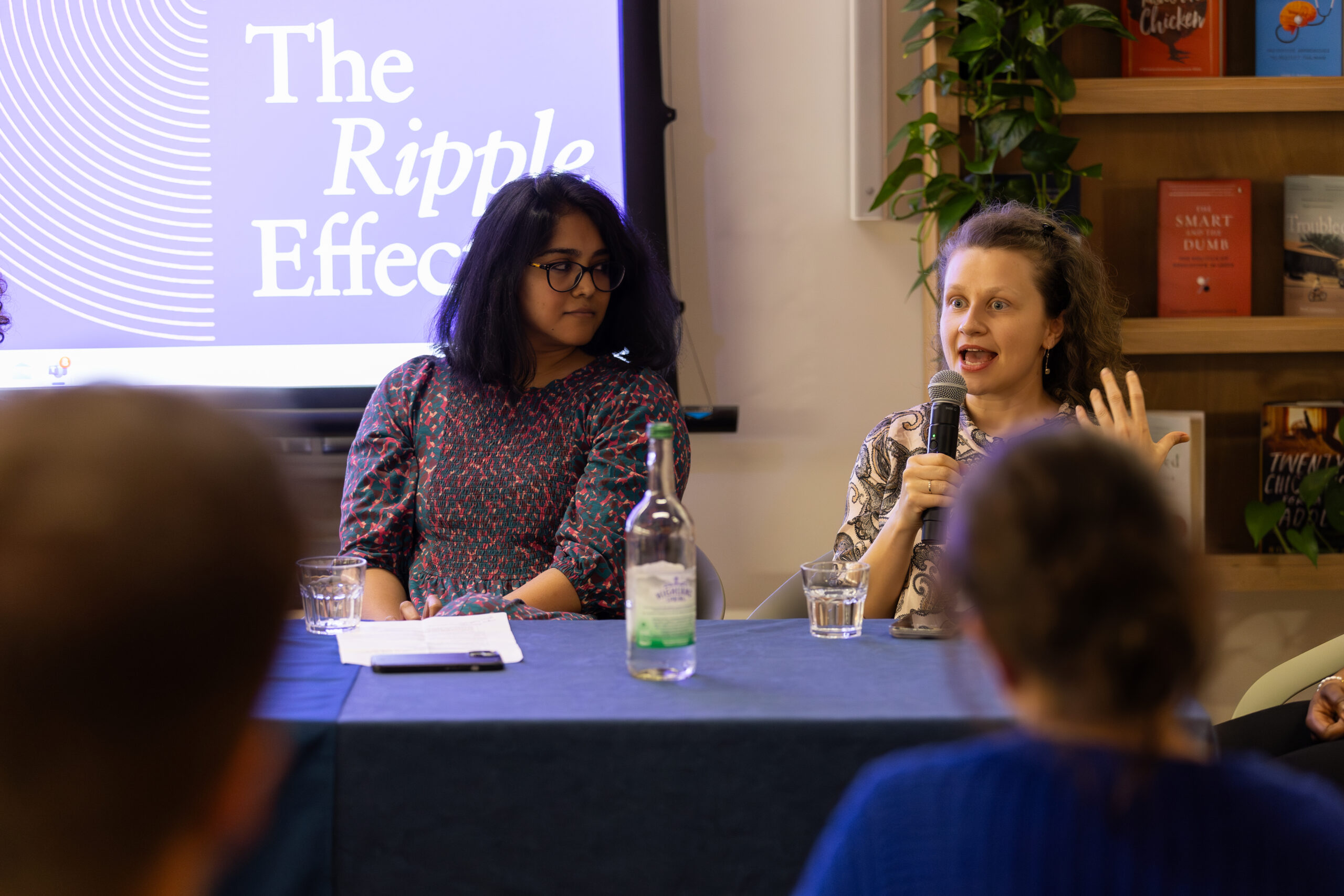 Divya Venkatesh [2011], a BBSRC Discovery Fellow at the University of Oxford, spoke about the potential for another pandemic, particularly a flu-related one. Her work in bioinformatics focuses on tracking the spread of bird flu [H5N1] to mammals. She said livestock are fairly well monitored, but other species, such as wild seals, are not. “They can act as natural reservoirs and may be more important in terms of disease than we thought,” she said.
Divya Venkatesh [2011], a BBSRC Discovery Fellow at the University of Oxford, spoke about the potential for another pandemic, particularly a flu-related one. Her work in bioinformatics focuses on tracking the spread of bird flu [H5N1] to mammals. She said livestock are fairly well monitored, but other species, such as wild seals, are not. “They can act as natural reservoirs and may be more important in terms of disease than we thought,” she said.
She added that grey seals seem not to get ill with H5N1, which can decimate other animal populations, and could prove an important avenue of research for future treatments if the virus adapts to be able to pass to humans.
3D bioprinting
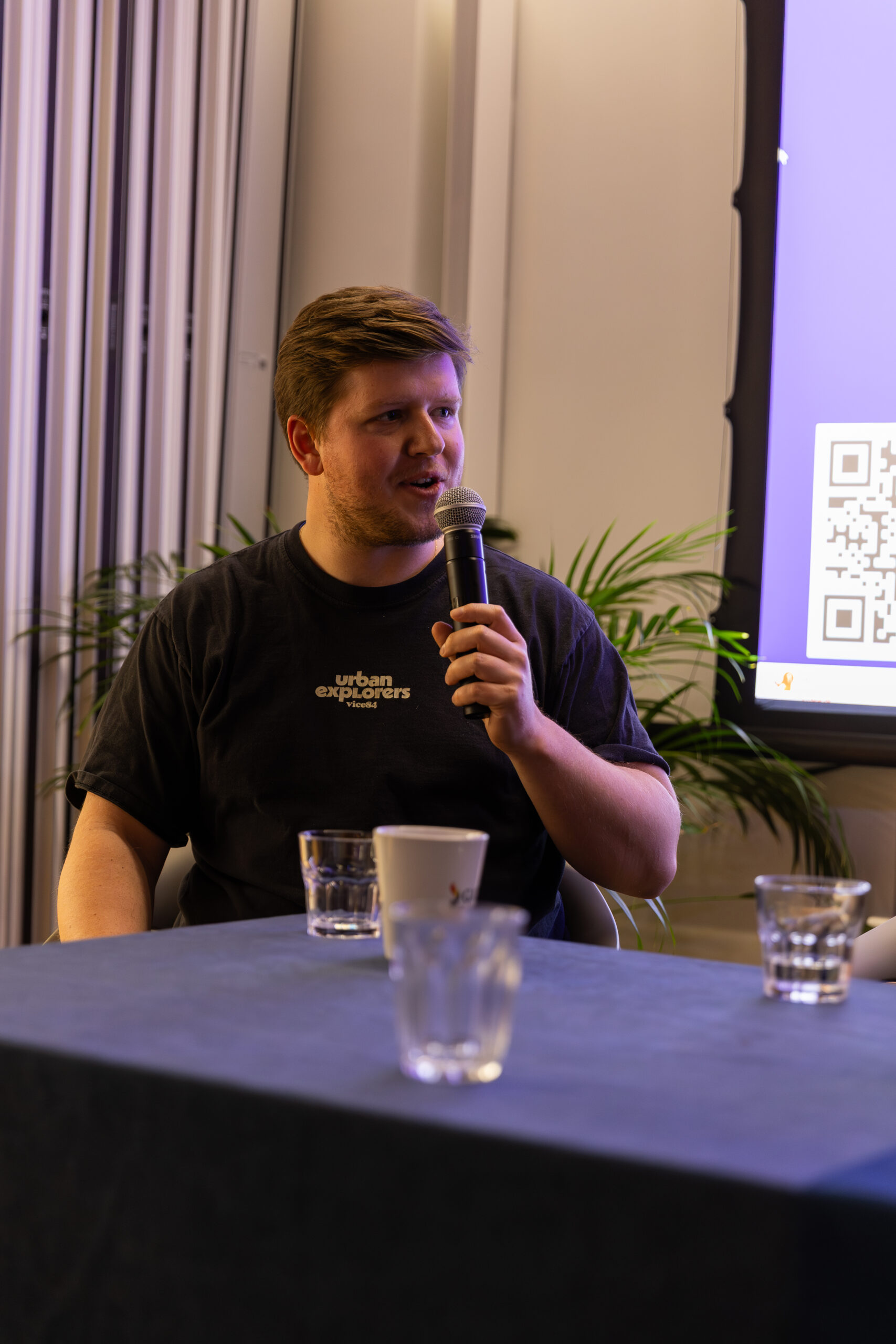 Current scholar Josh Weygant [2023] spoke about his work on 3D bioprinting of human organs, a subject that is very personal to him since he lost half of his large intestine at the age of one. In the next decades it is hoped that 3D bioprinting will be able to extract a person’s living cells and use them to print a functional organ that is adapted to their body.
Current scholar Josh Weygant [2023] spoke about his work on 3D bioprinting of human organs, a subject that is very personal to him since he lost half of his large intestine at the age of one. In the next decades it is hoped that 3D bioprinting will be able to extract a person’s living cells and use them to print a functional organ that is adapted to their body.
In the shorter term, 3D bioprinting is being used to develop better treatments for common medical ailments because it allows scientists to create mini organs outside the body which behave as they would do inside it. Currently, treatments are tested in environments that do not represent what is going on in the human body.
Biometrics for global health
Alexandra Grigore [2012], Chief Strategy Officer at Simprints and one of eight winners of the Gates Cambridge Impact Award, spoke about how her organisation is helping the estimated 850m people without official identity documents to get access to medical treatments, including vaccines, through fingerprint identification tools.
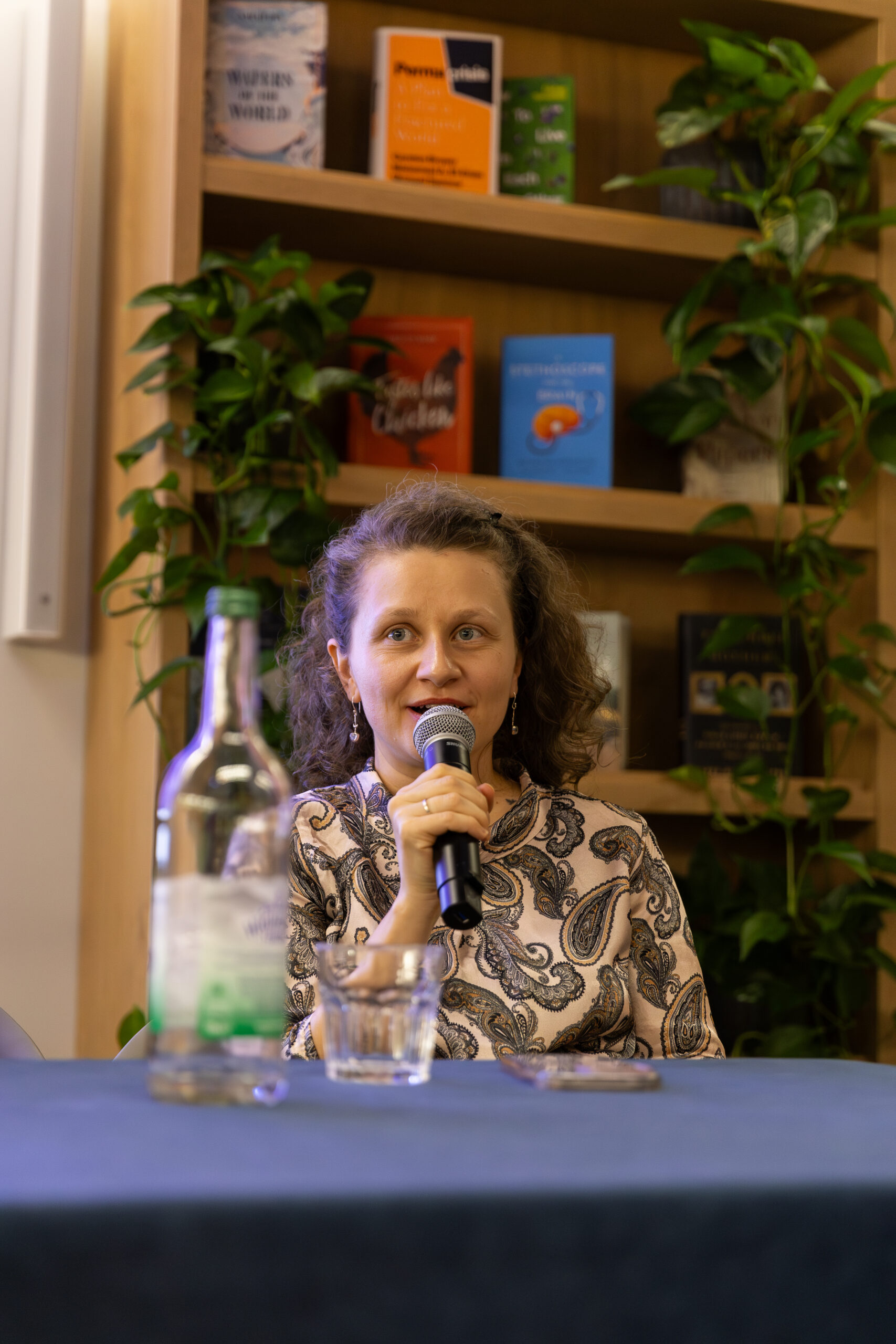 By providing these biometric tools linked to mobile phones that can be used in remote rural areas, Simprints helps governments to track who has been vaccinated and what the outcome has been. So far it has helped 3.4 million people across 17 countries. “These tools have the transformative power to save lives one finger tap at a time,” said Alexandra.
By providing these biometric tools linked to mobile phones that can be used in remote rural areas, Simprints helps governments to track who has been vaccinated and what the outcome has been. So far it has helped 3.4 million people across 17 countries. “These tools have the transformative power to save lives one finger tap at a time,” said Alexandra.
In the Q & A at the end of the event, the speakers fielded questions on everything from whether diet can curb the risk of pandemics to the role of genetically modified foods in food security.
Asked what difference Gates Cambridge had made to them, the panellists spoke of how they had benefited from the ideas of other scholars in their work. Carol Ibe is collaborating with two Gates Cambridge Scholars on her project; Simprints, which has recently opened its first office in Ghana, was co-founded by Gates Cambridge Scholars; and Josh Weygant is being supervised by a Gates Cambridge Scholar. “
The Gates Cambridge community is wonderful,” said Ibe.
*Photo credit: Nick Saffell.









